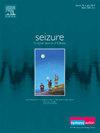The relationship between disease concealment, stigmatization, and self-management in adult patients with epilepsy in Turkey
IF 2.8
3区 医学
Q2 CLINICAL NEUROLOGY
引用次数: 0
Abstract
Objective
Patients with epilepsy tend to conceal their disease for fear of stigma. Stigmatization and tendency of epilepsy patients to conceal their illness may make their effective management of the disease and adherence to treatment difficult. Patients should adopt self-management behaviors to avoid being affected by this adverse situation. The aim of the study was to determine the relationship between disease concealment, stigmatization, and self-management in adult patients with epilepsy in Turkey.
Methods
This descriptive and correlational study was conducted at the neurology outpatient clinic a training and research hospital. The sample consisted of 143 patients admitted to the neurology outpatient clinic between May and August 2023. Data were collected using personal information form, Concealment of Epilepsy Scale (CES), Epilepsy Stigma Scale (ESS), and Epilepsy Self-Management Scale (ESMS).
Results
There was a positive correlation between CES and ESS total scores (r = 0.166, p = 0.047). A negative correlation between CES and ESMS total scores (r = -0.182, p = 0.029), and ESMS “seizure management” subscale scores (r = -0.178, p = 0.033). There was a positive correlation between ESS total and ESMS “safety management” subscale scores (r = 0.171, p = 0.042), and a negative correlation between ESS total and ESMS “lifestyle management” subscale scores (r = -0.219, p = 0.009). Participants with epileptic seizures in the last month (ß = 0.174, p < 0.05) felt higher stigmatization, and who were university education graduate (ß = -0.232, p < 0.05) felt lower stigmatization.
Conclusions
Patients with epilepsy who conceal their disease were more likely to feel stigmatized, worse at self-management and managing their seizures. Patients who felt stigmatized were more likely to focus on safety and were worse at maintaining their lifestyles.
土耳其成人癫痫患者疾病隐瞒、污名化和自我管理之间的关系
目的癫痫患者因害怕耻辱而倾向于隐瞒病情。对癫痫患者的污名化和隐瞒病情的倾向可能使他们难以有效地控制疾病并坚持治疗。患者应采取自我管理行为,避免受到这种不利情况的影响。该研究的目的是确定土耳其成年癫痫患者疾病隐瞒、污名化和自我管理之间的关系。方法在某培训研究型医院神经内科门诊进行描述性和相关性研究。样本包括在2023年5月至8月期间入住神经病学门诊诊所的143名患者。采用个人信息表、癫痫隐瞒量表(CES)、癫痫污名量表(ESS)和癫痫自我管理量表(ESMS)收集数据。结果ce与ESS总分呈正相关(r = 0.166, p = 0.047)。CES与ESMS总分(r = -0.182, p = 0.029)、ESMS“癫痫发作管理”分量表得分(r = -0.178, p = 0.033)呈负相关。ESS总分与ESMS“安全管理”分量表得分呈正相关(r = 0.171, p = 0.042), ESS总分与ESMS“生活方式管理”分量表得分呈负相关(r = -0.219, p = 0.009)。最近一个月癫痫发作的参与者(ß = 0.174, p < 0.05)有较高的污名感,而大学教育毕业生(ß = -0.232, p < 0.05)有较低的污名感。结论隐瞒病情的癫痫患者更容易感到耻辱,自我管理和控制癫痫发作的能力更差。感到耻辱的患者更有可能关注安全,更不善于维持自己的生活方式。
本文章由计算机程序翻译,如有差异,请以英文原文为准。
求助全文
约1分钟内获得全文
求助全文
来源期刊

Seizure-European Journal of Epilepsy
医学-临床神经学
CiteScore
5.60
自引率
6.70%
发文量
231
审稿时长
34 days
期刊介绍:
Seizure - European Journal of Epilepsy is an international journal owned by Epilepsy Action (the largest member led epilepsy organisation in the UK). It provides a forum for papers on all topics related to epilepsy and seizure disorders.
 求助内容:
求助内容: 应助结果提醒方式:
应助结果提醒方式:


